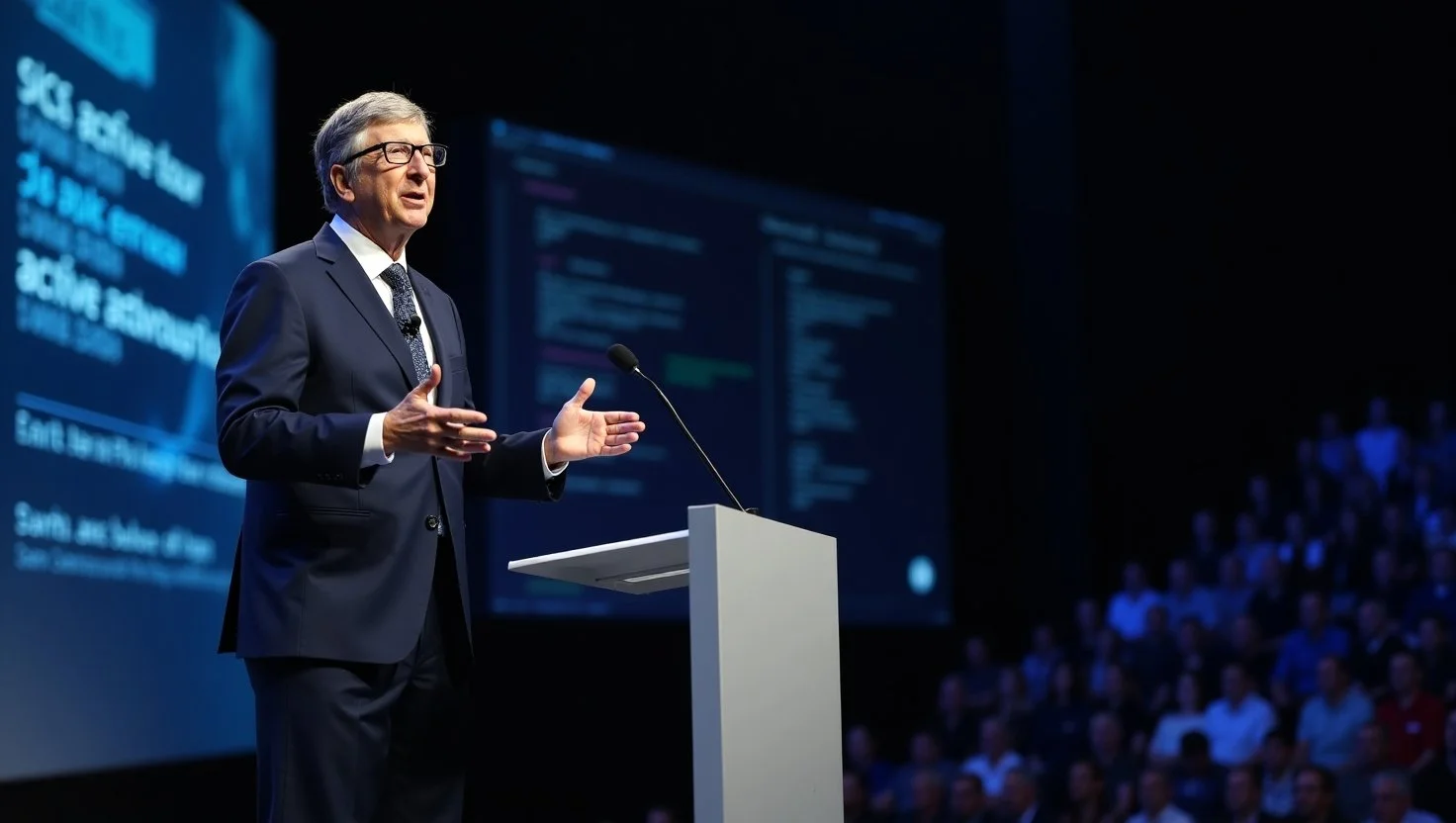What Inspired Bill Gates To Become An Entrepreneur?
/Considered one of the most popular entrepreneurs of all time, Gates co-founded Microsoft and helped evolve the tech landscape as we know it. Early interest in computers, exposure to innovative environments, and his general determination to build something meaningful is a basis of Missal's entrepreneurial spirit. Learning what drove him to do so sheds light on how determination, opportunity, and curiosity can pave the way to business success.
Bill Gates was an intrigued solution since an extremely youthful age. As a child in Seattle, he had early exposure to computers in the late 1960s, when they were not widely available to the public. Gates went to Lakeside School, where an association of mothers raised money to buy computer time for students. The access to a terminal linked to a General Electric computer let him write his first programs.
As a teenager, while programming as a kid, Gates and his friend, Paul Allen, spent many long hours programming. Their first projects included making software to play tic-tac-toe and process traffic patterns. In addition to giving them technical skills, this practical experience stoked their excitement for the possibilities of software. Gates recognized very early on that computing was going to upend entire industries, and he wanted to be right at the front of it.
Also Check Out Our: What Does Jeff Bezos Drive?
How Bill Gates' Education And Early Exposure To Business Shaped His Entrepreneurial Ambitions
Family was a huge part of why Gates wanted to achieve so much. His parents urged him to stretch himself intellectually and think about becoming a lawyer, like his father. But his interest in computing took him on a very different path. Gates kept pursuing programming and business opportunities after enrolling at Harvard University in 1973.
He met Steve Ballmer, who would later become the C.E.O. of Microsoft, at Harvard. Gates was the top of his class, which fueled his interest in learning, but he became more interested in learning through application than theory. In 1975, after reading an article about the Altair 8800, an early personal computer, he recognized a unique opportunity. He and Allen wrote software for the device, launching their entrepreneurial careers.
Seeing the soaring demand for software, Gates took a big leap of faith - he quit Harvard to devote himself to building Microsoft. His willingness to take risks and belief in personal computing's future were central to his success.
Our cleaning services is capable of meeting the needs and specialized needs of both houses and offices. We use eco-friendly solutions to ensure that the places we work are well kept and healthy environments.
How The Personal Computer Industry’s Early Challenges Inspired Bill Gates To Create Innovative Software Solutions
The personal computer industry of the 1970s and early 1980s was in its infancy. Even as hardware makers made headway, software was a tough nut. Gates understood that software, not hardware, would be the key to personal computing’s mainstream acceptance.
Then came one of the biggest turns in Gates’ career after Microsoft signed a contract with IBM to provide the operating system for their first personal computer. The company purchased the rights to an existing system, made modifications, and rebranded it as MS-DOS. This agreement established the groundwork for Microsoft’s market dominance in software.
By placing emphasis on software solutions instead of hardware production, Gates helped Microsoft lead in an emerging market. He foresaw that personal computing would be on the cusp of becoming mainstream, and that software availability would both drive personal computing and need to be easy to use and work on many different machines.
Bill Gates' Competitive Spirit And Business Mindset That Motivated Him To Keep Pushing Forward
Gates was a smart businessman in addition to a very gifted coder. Microsoft's rise was driven in great part by his competitive tendencies. He embraced aggressive corporate tactics, safeguarded alliances, and exceeded rivals. He not only pushed his team toward excellence but also made smart decisions that kept Microsoft ahead of the rivals.
Among his commercial tactics was licensing Microsoft's operating system to several hardware companies instead of restricting it to one brand. Microsoft was able to scale rapidly and control the personal computing scene by doing such. Rivals concentrated on their own systems. Gates put Microsoft programs in as many hands as he could.
Their attention to detail and capacity to forecast market trends helped him also negotiate the major obstacles of an industry changing rapidly. Gates established Microsoft's technological supremacy by always improving its products and exploring uncharted territories.
Also Check Out Our: How Did Jeff Bezos Maintain His Wealth?
Bill Gates’ Philanthropy And How His Entrepreneurial Success Inspired Him To Give Back To Society
As Microsoft became a global Goliath, Gates became more involved in philanthropy. He'd been in the corporate world of the for a long time, and had come into considerable personal fortune and thought of themselves as leveraging it onto more abstract challenges. In 2000, he and his wife, Melinda, established the Bill & Melinda Gates Foundation to tackle poverty, education and world health among other issues.
In philanthropy Gates also took a business-first approach. Using an outside-the-box approach with a similar analytic lens to solve global challenges, he came up with potential solutions to the issues which can be perceived as big hairy problems. The impact of his efforts in distributing vaccines will be felt around the world, as will his research investments into renewable energy and his reform of education.
Also Check Out Our: How Long Did Jeff Bezos Stay In Space?
The Lasting Influence Of Bill Gates On The Business And Technology World
Bill Gates’ entrepreneurship legacy extends beyond Microsoft. Follow that leverage through the behavior of modern tech companies an obsession with experimentation, business decisions skewed away from near-term profitability in favor of longer-term effect; How to Make a Thing Happen has offered a playbook to countless entrepreneurs on what to do when faith and humility are a much more productive pairing than ego or entitlement.
Outside Silicon Valley, Gates’s philanthropy is often a template for ultrawealthy people trying to use their money for social good. That’s how business success can be weaponized to overcome those challenges for the greater good, and that’s the kind of leadership that needs to exist to help make the world better. He’s challenged generations of actors who came after him to think big, dare big, be catalysts for good.







